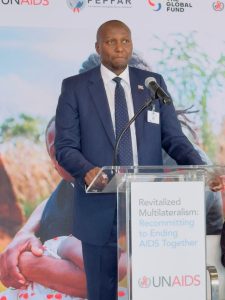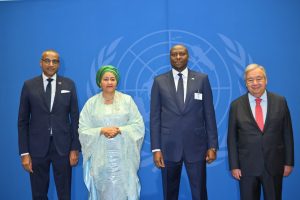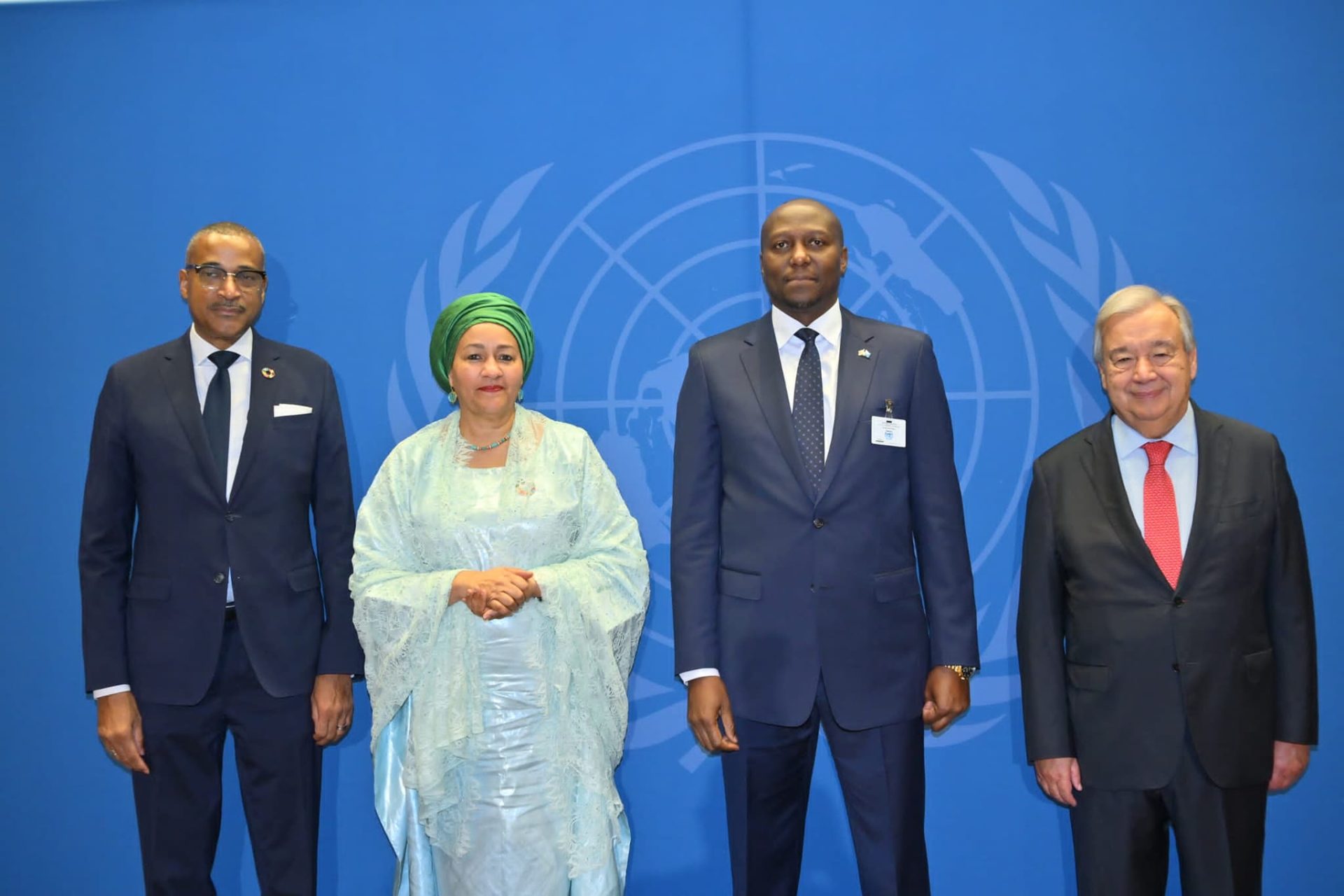By Ncaba Ntshakala
Sitayilwa siyincobe! Prime Minister Russell Dlamini has declared that the fight against HIV/AIDS is far from over, emphasizing that the world must intensify its efforts if the 2030 target of ending AIDS as a public health threat is to be achieved.
Speaking during a high-level side event organized by UNAIDS on the sidelines of the United Nations General Assembly (UNGA) in New York, Dlamini highlighted the need for a revitalized multilateral approach,
where he highlighted that without renewed global commitment, progress in combating HIV could stall.
The event, themed “Revitalised Multilateralism: Recommitting to Ending AIDS Together,” was a platform for world leaders to discuss the future of the global HIV response.
RELATED: PM challenges Lobamba to combat HIV/AIDS through social behavioural change
In his remarks, Dlamini pointed out that while much has been achieved, HIV remains an unfinished business, with numerous challenges still obstructing the global effort to end AIDS.
He identified limited resources, inadequate healthcare infrastructure, climate-related shocks, health emergencies, and socio-economic barriers as some of the pressing issues, particularly for developing countries.
These challenges, he noted, are not mere statistics, but represent real lives and struggles.
The Premier stressed that the only way forward is through enhanced global cooperation, urging countries to strengthen partnerships and share responsibilities in order to overcome these obstacles.
“Revitalized multilateralism,” Dlamini stated, “calls for renewed partnerships and a unified commitment to ending AIDS as a public health threat.

” He acknowledged the power of collective action, saying that no single nation can achieve the eradication of HIV and AIDS alone.
He drew on the African concept of “Ubuntu,” which emphasizes unity and shared responsibility, noting that this philosophy has played a critical role in Africa’s response to HIV.
Eswatini, under the leadership of His Majesty King Mswati III, has also embraced this ethos, with the King famously stating, “HIV yindzaba yetfu sonkhe,” meaning “the response to HIV is our collective responsibility.”
Dlamini also highlighted Eswatini’s achievements in the fight against HIV, describing the country’s commitment to the HIV agenda as exemplary.
He noted that the Kingdom has taken significant steps at both the political and community levels, where it enhanced the active participation of all citizens in the national HIV response.
Since the establishment of a government parastatal in 2001 to coordinate a multi-sectoral approach, Eswatini has successfully adopted global HIV recommendations, policies, and tools, which has contributed to a decline in new infections and HIV-related deaths.
The country is close to achieving the UNAIDS 95-95-95 targets, with current figures standing at 94-97-96—results that demonstrate the effectiveness of its strategy.
RELATED: Eswatini pledges E17.6 million for the fight against HIV/AIDS, Malaria
The Prime Minister attributed part of these successes to Eswatini’s Tinkhundla system of governance, which aligns with the nation’s cultural traditions and has been instrumental in raising awareness about HIV at the grassroots level.
This governance system, he explained, where enhances cohesion within communities and promotes family values, which in turn has helped stabilize family structures that were once threatened by gender-based violence, multiple concurrent partnerships, and rising HIV infections.
In his address, Dlamini also praised King Mswati III’s leadership in combating stigma and discrimination, recalling the King’s firm stance on ending social prejudices against those affected by HIV.
“Lokukhombana akuphele kutsi nyaMaswati,” the King said, which translates to “stigma and discrimination must come to an end now.”
This message of zero tolerance toward discrimination has been crucial in promoting a more inclusive and supportive environment for those living with HIV in Eswatini.
As the Premier concluded his remarks, he called on all global stakeholders to recommit to the fight against HIV, stressing that progress in one region must be mirrored by progress everywhere.
He urged leaders and international organizations to unite behind the goal of ending AIDS, emphasizing that failure to act now would be a failure to humanity.

With the right commitment, funding, and cooperation, Dlamini believes that a future free from the negative impact of HIV and AIDS is within reach.
“Our strength lies in our unity,” Dlamini concluded. “By embracing revitalized multilateralism and recommitting to ending AIDS together, we can create a future where HIV and AIDS,
stigma and discrimination, human rights violations, and gender-based violence are eradicated.
Let us move forward with hope and determination, ensuring that by 2030, we can finally declare the end of AIDS as a public health threat.”


